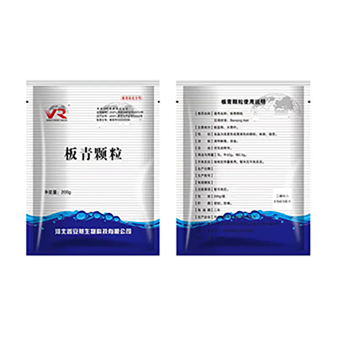- Afrikaans
- Albanian
- Amharic
- Arabic
- Armenian
- Azerbaijani
- Basque
- Belarusian
- Bengali
- Bosnian
- Bulgarian
- Catalan
- Cebuano
- Corsican
- Croatian
- Czech
- Danish
- Dutch
- English
- Esperanto
- Estonian
- Finnish
- French
- Frisian
- Galician
- Georgian
- German
- Greek
- Gujarati
- Haitian Creole
- hausa
- hawaiian
- Hebrew
- Hindi
- Miao
- Hungarian
- Icelandic
- igbo
- Indonesian
- irish
- Italian
- Japanese
- Javanese
- Kannada
- kazakh
- Khmer
- Rwandese
- Korean
- Kurdish
- Kyrgyz
- Lao
- Latin
- Latvian
- Lithuanian
- Luxembourgish
- Macedonian
- Malgashi
- Malay
- Malayalam
- Maltese
- Maori
- Marathi
- Mongolian
- Myanmar
- Nepali
- Norwegian
- Norwegian
- Occitan
- Pashto
- Persian
- Polish
- Portuguese
- Punjabi
- Romanian
- Russian
- Samoan
- Scottish Gaelic
- Serbian
- Sesotho
- Shona
- Sindhi
- Sinhala
- Slovak
- Slovenian
- Somali
- Spanish
- Sundanese
- Swahili
- Swedish
- Tagalog
- Tajik
- Tamil
- Tatar
- Telugu
- Thai
- Turkish
- Turkmen
- Ukrainian
- Urdu
- Uighur
- Uzbek
- Vietnamese
- Welsh
- Bantu
- Yiddish
- Yoruba
- Zulu
8 月 . 14, 2024 12:10 Back to list
Recommended Dosage Guidelines for Ivermectin Injection in Different Treatment Scenarios and Conditions
Ivermectin Injection Dosage Understanding the Basics
Ivermectin is a widely used anti-parasitic medication, effective against a variety of conditions caused by parasites, including but not limited to river blindness, lymphatic filariasis, and scabies. In recent years, its applicability in other fields, including veterinary medicine and various off-label uses, has expanded the scope of its significance. Proper dosing is crucial for the effectiveness of ivermectin injections, preventing adverse effects while ensuring therapeutic efficacy.
Overview and Mechanism of Action
Ivermectin is derived from a naturally occurring compound called avermectin, produced by the soil bacterium *Streptomyces avermitilis*. Its mechanism of action involves binding to specific ion channels in the parasite's nervous system, leading to paralysis and death of the parasite through the disruption of neurotransmission. This targeted action makes ivermectin a potent drug against numerous parasitic infections.
Recommended Dosage
The dosage of ivermectin can vary significantly based on several factors, including the type of infection being treated, the age and weight of the patient, and the form of the drug used. For injectable formulations, appropriate dosing guidelines are essential to ensure safety and efficacy.
1. Clinical Indications The dosage can change depending on whether the drug is being used to treat infections in humans or animals. For human treatments, typically for conditions like lymphatic filariasis or onchocerciasis, the recommended dose is approximately 150 micrograms per kilogram of body weight taken as a single dose. However, more significant restrictions are applied concerning its injection, often reserved for severe cases or specific circumstances.
2. Veterinary Uses In veterinary medicine, for dogs, horses, and other animals, the injectable form of ivermectin is commonly used. The dosage usually ranges from 0.5 to 1.0 milligrams per kilogram of body weight. However, it’s vital to note that certain breeds of dogs, specifically herding breeds like Collies and Australian Shepherds, may have a higher susceptibility to ivermectin toxicity due to a genetic mutation affecting drug metabolism.
ivermectin injection dosage

3. Administration Method Ivermectin injections are typically administered subcutaneously or intramuscularly. Veterinary formulations may vary in concentration and should be used according to the manufacturer's guidelines and the veterinarian's recommendations.
Safety and Precautions
While ivermectin is generally considered safe when used at prescribed doses, there are several precautions to keep in mind
- Contraindications Ivermectin should be avoided in individuals with documented hypersensitivity to the drug or any of its components. In veterinary uses, always consider the animal's health condition and any underlying issues that might predispose them to adverse effects.
- Side Effects Potential side effects in humans can include dizziness, rash, and gastrointestinal disturbances. For animals, side effects may include sedation, disorientation, and in rare instances, severe neurological symptoms.
- Monitoring Patients receiving ivermectin, especially via injection, should be monitored for any signs of side effects or allergic reactions. In humans, particularly, a follow-up with healthcare professionals is essential to ensure that the treatment remains effective and safe.
Conclusion
Ivermectin remains an invaluable drug in both human and veterinary medicine. Its proper use, including understanding dosages and potential side effects, is essential for achieving its therapeutic benefits. As research evolves, so may recommendations for its use, making it imperative for healthcare providers and pet owners to stay informed about the latest guidelines. Always consult a healthcare provider or veterinarian before starting any treatment regimen involving ivermectin to ensure safe and effective use.
-
The Power of Radix Isatidis Extract for Your Health and Wellness
NewsOct.29,2024
-
Neomycin Sulfate Soluble Powder: A Versatile Solution for Pet Health
NewsOct.29,2024
-
Lincomycin Hydrochloride Soluble Powder – The Essential Solution
NewsOct.29,2024
-
Garamycin Gentamicin Sulfate for Effective Infection Control
NewsOct.29,2024
-
Doxycycline Hyclate Soluble Powder: Your Antibiotic Needs
NewsOct.29,2024
-
Tilmicosin Premix: The Ultimate Solution for Poultry Health
NewsOct.29,2024













